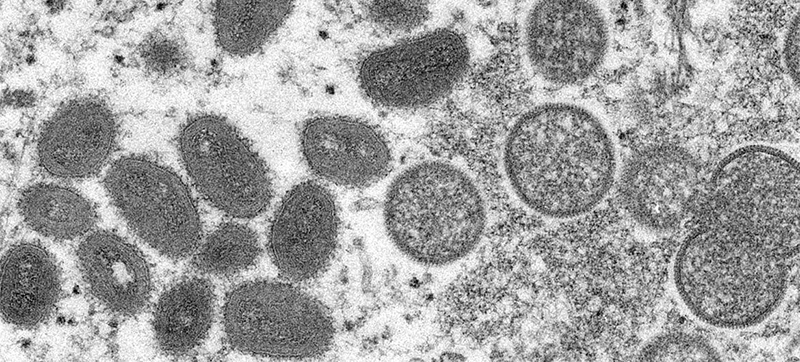 Monkeypox
Monkeypox Monkeypox: Amid uncertainty, global situation ‘cannot be ignored’ says WHO chief
New York: Addressing the first meeting of the World Health Organization’s Emergency Committee on Thursday over the global Monkeypox outbreak, the WHO chief told members that person-to-person transmission was ongoing, and “likely underestimated”.
Members of the committee could announce their decision on whether or not the outbreak constitutes a public health emergency of international concern, as early as Friday, but meanwhile Tedros Adhanom Ghebreyesus said the spread of the disease both in non-endemic and endemic countries, “cannot be ignored”.
The first mysterious cluster appeared in the United Kingdom just over six weeks ago, when WHO was told of a family cluster of three cases, without any recent travel having taken place.
“Since then, more than 3,200 confirmed cases of Monkeypox, and one death, have been reported to WHO, from 48 countries including Nigeria, and in five WHO regions”, said Tedros.
The outbreak in newly affected countries continues to be primarily among men who have sex with men, and who have reported recent sex with new or multiple partners, he added.
Lack of understanding
“Person-to-person transmission is ongoing and is likely underestimated. In Nigeria, the proportion of women affected is much higher than elsewhere, and it is critical to better understand how the disease is spreading there”, said the WHO chief.
He said so far this year, almost 1,500 suspected cases of monkeypox and around 70 deaths have been reported in Central Africa, primarily in the Democratic Republic of the Congo (DRC) but also in the Central African Republic and Cameroon.
“Few of these cases are confirmed, and little is known about their circumstances. While the epidemiology and viral clade in these cases may be different, it is a situation that cannot be ignored.”
Sharing information, saves lives
He outlined several asks of Member States, going forward, primarily for all information to be shared. He said in some other outbreaks, “we have sometimes seen the consequences of countries not being transparent, of not sharing information.”
He called for case finding, contact tracing, laboratory investigation, genome sequencing, and implementation of infection prevention and control measures. WHO also needs clear case definitions to help identify and report infections.
And the WHO chief said all countries had “to remain vigilant and strengthen their capacities to prevent onward transmission of Monkeypox. It is likely that many countries will have missed opportunities to identify cases, including cases in the community without any recent travel.”
WHO’s goal is to support countries to contain transmission, and stop the outbreak with established public health tools including surveillance, contact-tracing and isolation of infected patients.
Risks to health workers
Tedros said there were also “some risks to health workers if they are not wearing appropriate personal protective equipment.
“So, although most cases so far in newly affected countries have been identified in men who have sex with men, WHO has been calling for intensified surveillance in the broader community.”
We have learned a great deal from recent outbreaks, including COVID-19 and the global HIV epidemic, he told assembled scientists, but one of the most important, was to work closely with those communities “to co-create effective risk communications. That is what WHO is doing.”
Address stigma, disinformation
Tedros said it was vital to address stigma, discrimination and misinformation, in the Monkeypox, and other outbreaks, swiftly and decisively.
“We also need to work together as an international community to generate the necessary clinical efficacy and safety data on vaccines and therapeutics against Monkeypox, and to ensure their equitable distribution.”
Support Our Journalism
We cannot do without you.. your contribution supports unbiased journalism
IBNS is not driven by any ism- not wokeism, not racism, not skewed secularism, not hyper right-wing or left liberal ideals, nor by any hardline religious beliefs or hyper nationalism. We want to serve you good old objective news, as they are. We do not judge or preach. We let people decide for themselves. We only try to present factual and well-sourced news.







